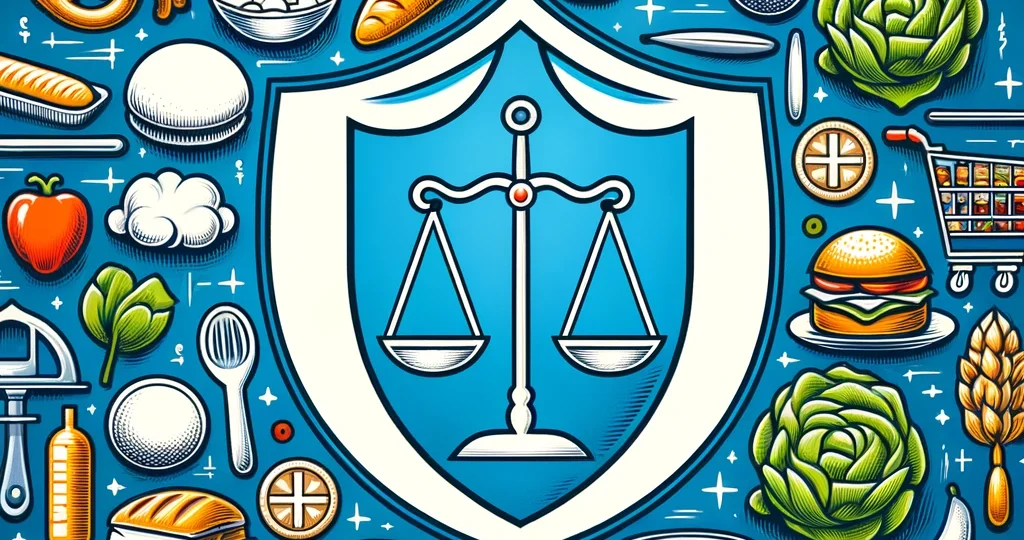
In Los Angeles, the diversity of the grocery industry demands rigorous adherence to food law to ensure the safety and satisfaction of its consumers. For grocery stores and supermarkets, navigating this complex legal terrain involves a deep understanding of regulations pertaining to food safety, product liability, and consumer protection. This article sheds light on the critical aspects of food law that are essential for maintaining legal compliance for grocery stores to become a reputable and compliant grocery business in Los Angeles.
Food Safety & Sanitation Essentials:
- Adhering to the California Retail Food Code: This foundational set of standards mandates proper food storage, handling, sanitation practices, and employee training to safeguard against foodborne illnesses.
- Implementing HACCP Plans: The Hazard Analysis and Critical Control Point (HACCP) system is crucial for identifying and managing potential hazards in food production and distribution.
- Undergoing Inspections & Audits: Compliance with food safety standards is verified through regular inspections by the Los Angeles County Department of Public Health. Promptly addressing any issues is paramount.
Navigating Product Liability:
- Understanding Strict Liability: In California, grocery stores can be held liable for foodborne illnesses regardless of fault under the strict liability doctrine. Robust food safety protocols are vital to mitigate this risk.
- Managing Product Recalls: Familiarize yourself with the procedures for conducting efficient and legally compliant product recalls to protect public health and minimize liability.
- Ensuring Accurate Product Labeling: Compliance with federal and state regulations on product labeling, including ingredients, allergens, and expiration dates, is non-negotiable.
Upholding Consumer Protection Laws:
- Abiding by California False Advertising Law: Misleading advertising practices can lead to significant legal repercussions. Transparency in product claims and pricing is essential.
- Complying with the California Consumer Privacy Act (CCPA): Grocery stores must navigate the complexities of consumer data protection under the CCPA, ensuring privacy and transparency.
- Following the Food Allergen Labeling and Consumer Protection Act (FALCPA): Accurate labeling of major food allergens is required to protect consumers and comply with federal regulations.
Additional Legal Considerations:
- Employee Training: Continuous training on food safety, handling, and allergen awareness is essential for minimizing health risks and ensuring regulatory compliance.
- Risk Management: A comprehensive approach to identifying and mitigating potential hazards is necessary to safeguard against product recalls and liability claims.
- Securing Insurance: Adequate insurance coverage is crucial for protecting your business from the financial implications of potential liability issues.
Staying Informed and Seeking Expert Advice:
The dynamic and detailed nature of food law in Los Angeles requires grocery stores and supermarkets to stay abreast of the latest regulatory changes and best practices. Leveraging resources from the California Department of Public Health and the Los Angeles County Department of Public Health, along with consulting specialized food law attorneys, can provide the guidance and assurance needed to navigate the complexities of the food industry with confidence.
